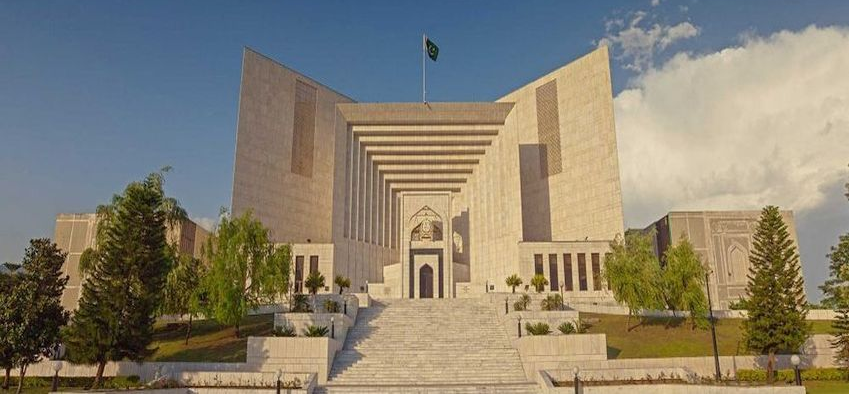Positions in BS-16 and above must be filled through tests and examinations conducted by the FPSC --- Supreme Court of Pakistan
Islamabad 18-09-2024: The Supreme Court of Pakistan dismissed several civil petitions challenging the Islamabad High Court’s ruling that invalidated the regularization of several government employees in the Bureau of Emigration & Overseas Employment (BE&OE). The Court upheld the Islamabad High Court’s decision, affirming that the appointments and regularization of these employees were not made in accordance with the law.
The petitions, which were filed under Article 185(3) of the Constitution of Pakistan, sought to overturn the High Court’s judgment from January 2023. The High Court had allowed an Intra-Court Appeal (ICA) and a writ petition, which challenged the regularization of employees initially hired on a contract basis for various positions, including Deputy Directors (BS-18). The High Court found that the regularization process violated recruitment rules and referred the petitioners’ cases to the Federal Public Service Commission (FPSC) for further evaluation.
The Supreme Court of Pakistan decision emphasized several important legal principles regarding government appointments. First and foremost, the Court reaffirmed the role of the Federal Public Service Commission (FPSC) in ensuring merit-based recruitment for public service positions, particularly for posts in BS-16 and above.
According to the Civil Servants (Appointment, Promotion & Transfer) Rules, 1973, positions in BS-16 and above must be filled through tests and examinations conducted by the FPSC. The Court ruled that the petitioners’ regularization through a Cabinet Sub-Committee bypassed these mandatory legal requirements.
In its detailed judgment, the Court clarified that the Cabinet Sub-Committee does not have the legal authority to regularize appointments for BS-16 and above positions, which are within the jurisdiction of the FPSC. This decision invalidates the process by which the petitioners were regularized. The Court held that the appointments were void ab initio (invalid from the outset) as they contravened the Civil Servants Act, 1973, and relevant rules under the Federal Public Service Commission Ordinance, 1977.
The Court noted that the Islamabad High Court had already provided substantial relief by referring the petitioners’ cases to the FPSC for determining their eligibility and fitness for the posts. The Supreme Court of Pakistan upheld this course of action, emphasizing that no further interference was necessary, as the process of determining merit and eligibility through the FPSC would ensure justice.
The judgment referenced several key cases to support its decision, including:
- Province of Punjab Vs. Dr. Javed Iqbal (2021 SCMR 767), which differentiates between contractual and regular employees.
- Shahid Pervaiz Vs. Ejaz Ahmad (2017 SCMR 206), which ruled that actions without lawful authority are void and cannot be protected by invoking the doctrine of “past and closed transactions.”
- Federation of Pakistan Vs. Fazal-e-Subhan (PLD 2024 SC 515), which reinforced the need for proper procedure and legal backing in regularization cases.
The Supreme Court of Pakistan stressed the importance of transparency, merit-based recruitment, and adherence to legal processes in public sector appointments. It condemned practices of nepotism and favoritism in government hiring, noting that such practices undermine public trust in government institutions.
In its ruling, the Supreme Court of Pakistan has once again highlighted the significance of following the established recruitment rules for public sector employment. By dismissing the petitions, the Court sent a strong message regarding the integrity of the civil service recruitment process, reinforcing the importance of the FPSC’s role in maintaining merit-based appointments. The case has been referred back to the FPSC to determine the petitioners’ fitness and eligibility for the posts in question.
Powered by Froala Editor








